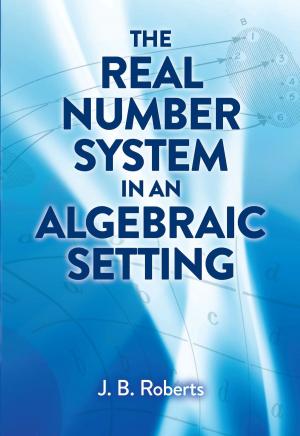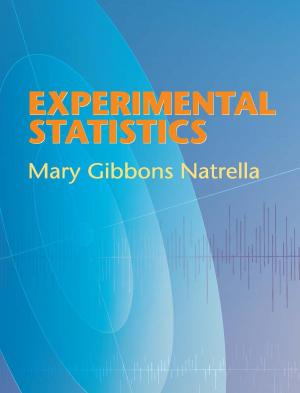| Author: | Denis R. Bell | ISBN: | 9780486152059 |
| Publisher: | Dover Publications | Publication: | December 3, 2012 |
| Imprint: | Dover Publications | Language: | English |
| Author: | Denis R. Bell |
| ISBN: | 9780486152059 |
| Publisher: | Dover Publications |
| Publication: | December 3, 2012 |
| Imprint: | Dover Publications |
| Language: | English |
This introduction to Malliavin's stochastic calculus of variations is suitable for graduate students and professional mathematicians. Author Denis R. Bell particularly emphasizes the problem that motivated the subject's development, with detailed accounts of the different forms of the theory developed by Stroock and Bismut, discussions of the relationship between these two approaches, and descriptions of a variety of applications.
The first chapter covers enough technical background to make the subsequent material accessible to readers without specialized knowledge of stochastic analysis. Succeeding chapters examine the functional analytic and variational approaches (with extensive explorations of the work of Stroock and Bismut); and elementary derivation of Malliavin's inequalities and a discussion of the different forms of the theory; and the non-degeneracy of the covariance matrix under Hormander's condition. The text concludes with a brief survey of applications of the Malliavin calculus to problems other than Hormander's.
This introduction to Malliavin's stochastic calculus of variations is suitable for graduate students and professional mathematicians. Author Denis R. Bell particularly emphasizes the problem that motivated the subject's development, with detailed accounts of the different forms of the theory developed by Stroock and Bismut, discussions of the relationship between these two approaches, and descriptions of a variety of applications.
The first chapter covers enough technical background to make the subsequent material accessible to readers without specialized knowledge of stochastic analysis. Succeeding chapters examine the functional analytic and variational approaches (with extensive explorations of the work of Stroock and Bismut); and elementary derivation of Malliavin's inequalities and a discussion of the different forms of the theory; and the non-degeneracy of the covariance matrix under Hormander's condition. The text concludes with a brief survey of applications of the Malliavin calculus to problems other than Hormander's.















